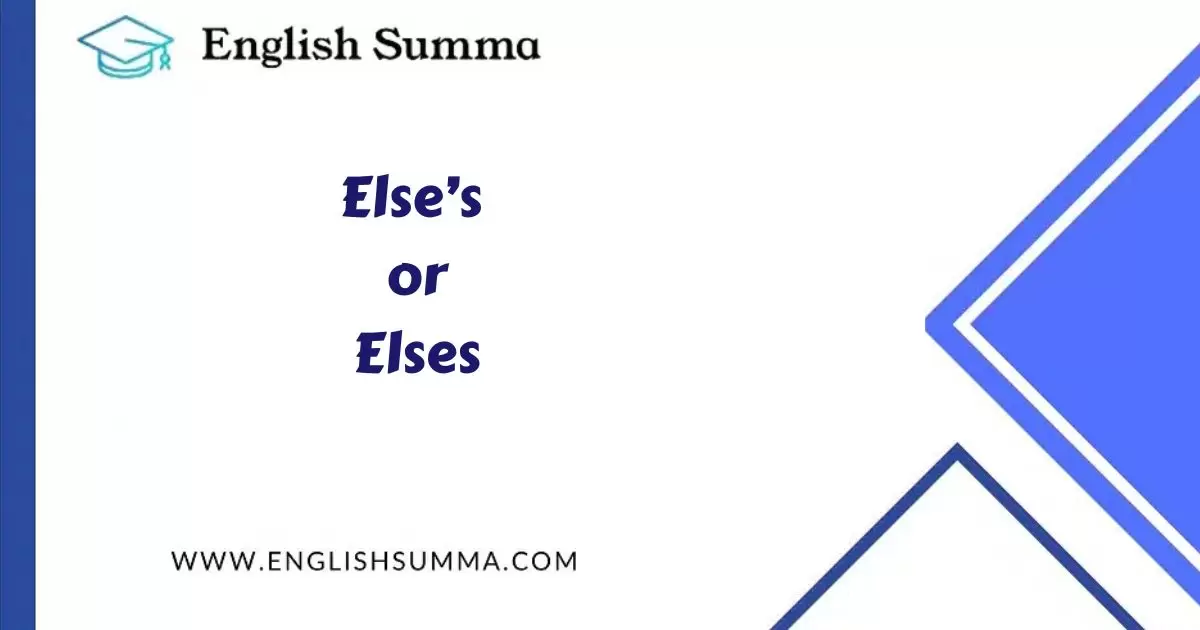Understanding Else’s: Singular Possessive Form
Else’s, adorned with an apostrophe preceding the “s,” serves as the singular possessive form of “else.” It denotes ownership or association of something by someone other than the subject being discussed. Let’s delve into various scenarios to elucidate its usage:
Personal Possession
“The book on the table is else’s.” Here, the possessive form “else’s” indicates that the book belongs to someone other than the speaker or a previously mentioned individual.
Impersonal Possession
“The apartment’s key is else’s.” In this scenario, the possessive form “else’s” implies that the key belongs to a person not specified in the conversation.
Read More: Texas’ or Texas’s? A Guide to Possessive Forms
Abstract Ownership
“The success of the project was else’s responsibility.” This sentence demonstrates the abstract ownership denoted by “else’s,” attributing responsibility to an unspecified individual.
Exploring Elses: Plural Possessive Form
Conversely, elses functions as the plural possessive form of “else,” signifying possession by multiple entities or individuals. It differs from else’s in that it implies ownership by more than one party. Consider the following examples:
Shared Ownership
“The belongings strewn across the room were everyone elses.” Here, the plural possessive “elses” suggests that the belongings belong to multiple individuals other than the speaker.
Collective Responsibility
“The achievements of the team were everyone elses contributions.” In this instance, “elses” denotes that the achievements are the result of contributions from multiple team members.
Distinguishing Between Else’s and Elses
In summary, the choice between else’s and elses hinges on whether the possession is singular or plural, respectively. Else’s denotes ownership by a single entity, while elses implies possession by multiple entities. Mastery of these distinctions empowers writers to wield the English language with precision and clarity.

